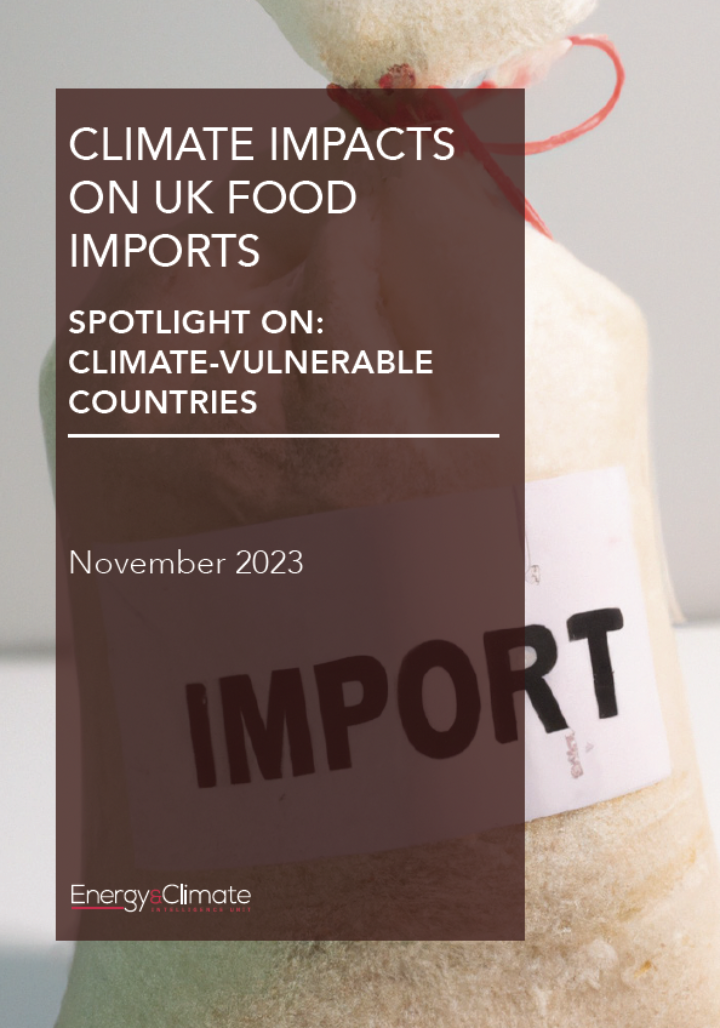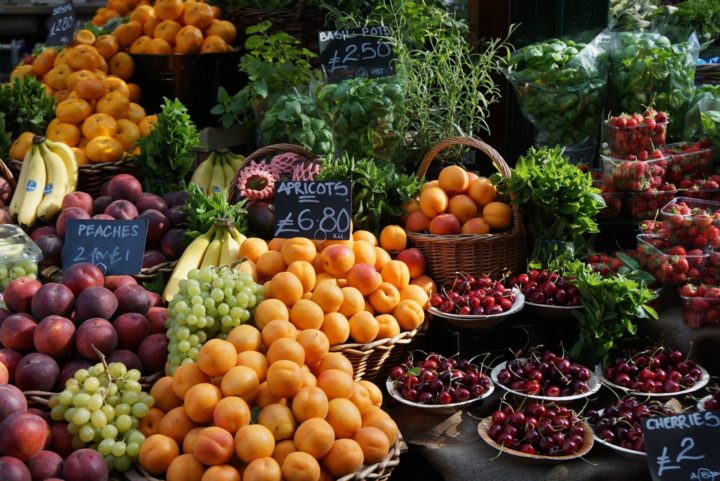Lack of climate resilience in our food supply chains risks our health
By Professor Rosie Green
Share
Last updated:

In the UK we have developed a highly sophisticated and responsive food system that lets us source a huge variety of foods from around the world. Food is historically cheap as a proportion of incomes, and choice has proliferated. However, there are profound problems with our current food system and these are likely to be exacerbated by climate change.
Not enough nutrition
Food is supposed to nourish us, but our current diets are contributing to ill health through obesity, cardiovascular disease and type II diabetes as well as increased risk of cancer from foods such as processed meat. Foods high in sugar, salt and oil are readily available and the average UK diet is the most highly processed of any country in Europe.
Food insecurity is also widespread and has been rising in recent years, with families particularly struggling to provide healthy foods for their children due to the cost of living crisis. Dietary recommendations say that we should be eating at least five portions of fruit and vegetables per day but currently we are only managing around three and a half portions on average.
Imported sources of nutrition
Our sources of healthy food have changed a great deal in the last few decades as tastes have changed. Where in the 1980s cabbages and carrots were popular, we are now more likely to choose bananas and grapes and other tropical varieties that need to be imported. This has added variety to our diets, but what does it mean for our food supply’s resilience to climate change in future?

We know that around half of the UK’s food is imported, and the new report from the Energy and Climate Intelligence Unit shows that around 16% of these imports come from countries that are highly vulnerable to climate change including Brazil, India and South Africa. This includes a high proportion of the fresh fruit and vegetables that we need to be consuming more of. Trade data show that while the UK produces more than 60% of its own meat and 75% of dairy, only 50% of vegetables and less than 10% of fruit is home grown, and that fruit is the single food group most vulnerable to climate change in terms of supply to the UK.
Food supply chains and health
The consequences of disruption to healthy food supply for our health could be severe. We have already seen empty fruit and vegetable shelves in recent years due to poor harvests in Europe and beyond, with salad vegetables being especially vulnerable to extreme weather events. In future this disruption could extend to our supply of tropical fruit and the year-round supply of vegetables such as tomatoes and beans that we have become used to.
If prices of healthy foods rise further because availability is limited, people will be more likely than ever to switch to the highly processed alternatives that can be stored for longer and are less vulnerable to climate disruption. This could lead to a spiral of people struggling for the cheapest and least nutritious calories, with further epidemics of obesity and cardiovascular disease that will put ever more pressure on our health services.

Protecting our sources of nutrition
To guard against this future, the UK will need to invest in climate resilient food production in the countries that supply large amounts of our healthy food, as suggested in the Energy and Climate Intelligence Unit report. We will also need to consider what we eat much more carefully in the context of our health and climate change. Studies have shown that we cannot meet the targets of the Paris Agreement without changing our diets and the way we produce food, and we would be able to free up much more land for production of healthy food (both at home and abroad) by reducing our meat consumption to healthy limits.
The UK is less vulnerable to the effects of climate change than many of the countries that currently supply our food, so encouraging people to eat more of the healthy foods that can be produced here such as peas and beans, root vegetables and apples, could also help to ensure our resilience. At the moment only 1% of the UK’s land is used for growing fruit and vegetables so there is room to grow more of these varieties.
We can’t grow our way out of the problem
However, the UK has not been self-sufficient in food for over 100 years and is unlikely to be in future, so we will still need to ensure a stable supply of the healthy foods that cannot be home grown - including the bananas and grapes that we prefer - through supporting climate adaptation in other countries.
Through investment in agriculture both at home and in the other countries we rely on we can start to improve the resilience of our supply of healthy food.
A matter of security
The report published at COP28 rightly points out that climate change is a matter of our national security as it relates to our food supply. More than this, it is a matter of health security - and the cost to our economy and health service of failing to adapt could be catastrophic.
The UK needs to take action now to safeguard our food supply, but also to prioritise the foods that are good for our health so that we can achieve a food system that is sustainable for people as well as the planet.
Professor Rosie Green is Head of the Planetary Health Group and Co-Director of the Centre on Climate Change and Planetary Health at the London School of Hygiene and Tropical Medicine